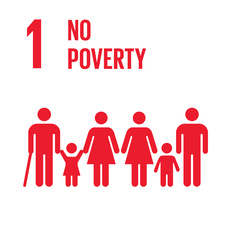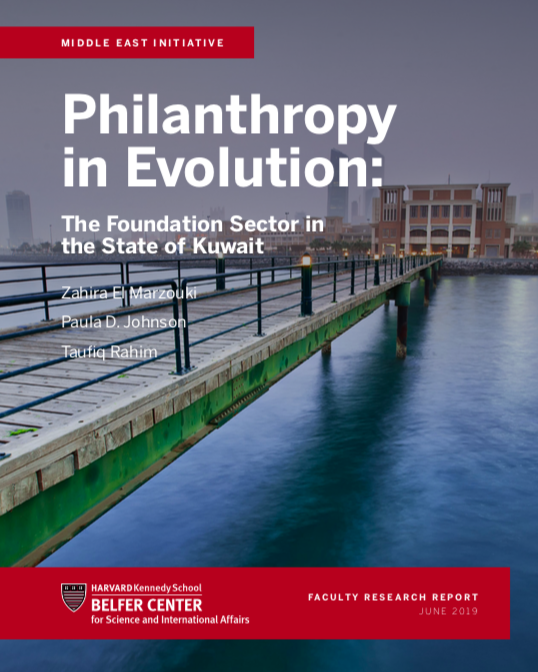Philanthropy in Evolution: The Foundation Sector in the State of Kuwait
This report, produced in partnership with the Harvard Belfer Center, presents a detailed survey of Kuwait’s philanthropic sector. This study was undertaken jointly by researchers at the Ash Center for Democratic Governance and Innovation at the Harvard Kennedy School as well as at Globesight and was supported by the Kuwait Program at the Middle East Initiative, Harvard Kennedy School.
Key Insights
- Kuwait has a long history of generosity and has been globally recognized for its humanitarian aid and philanthropic giving.
- Philanthropic giving in Kuwait is strongly influenced by religious and cultural traditions of generosity found across the Arab region, particularly in the Gulf, where Islamic religious practices—such as zakat and waqf—continue to anchor much of the charitable giving in Kuwait today.
- The ruling family has engaged in and become a role model for philanthropy in the country and has actively encouraged Kuwaitis to become philanthropically engaged.
- The current legal and policy environment for philanthropic and charitable organizations in Kuwait is relatively restrictive by global standards:
- While many recognize the need for regulations, recent legislation may hinder the growth of institutional philanthropy in Kuwait.
- Giving to organizations outside of Kuwait has become more difficult in recent times.
- On the other hand, new legal framework has helped build more trust with the public and may have led to the establishment of more philanthropic institutions and public charities within the country
- The report identified key patterns within institutional philanthropy in Kuwait:
- Organized or institutional philanthropy in Kuwait has grown significantly over the past 20 years. Among the active foundations, over 90 percent have been incorporated since 1999.
- The majority of foundations appear to be family-led.
- The organizations predominantly work in four key areas: religion; education; humanitarian relief and (immediate) poverty alleviation; and health.
- The foundations employ a mix of operational strategies, including grantmaking and operating their own internal programs.
- Looking ahead, there are several promising efforts and trends that have the potential to strengthen the country’s philanthropic institutions further:
- The recently created Union of Foundations and Charities could become an important platform to develop the sector through peer learning, professional development, collaboration, and advocacy
- a new law on philanthropy being prepared by the government which hopes to mitigate some of the current policy obstacles to greater charitable giving and create a more enabling environment for philanthropic activity
- a growing commitment to corporate social responsibility (CSR) among major companies in Kuwait
- A notable optimism among that next generation is committed to engaging actively in philanthropic giving
Focus Areas
The principal focus areas include philanthropic giving with priorities in education, humanitarian relief, poverty alleviation, and health.



Acknowledgement
The study team would like to acknowledge and thank the founders and leaders of philanthropic organizations with whom we met in Kuwait, whose participation and insights made this study possible.
Additionally, we would like to extend our gratitude to the government officials and not-for-profit leaders, and experts who shared invaluable insights on the practice of philanthropy in Kuwait.
This study was supported by the Kuwait Program at the Middle East Initiative (MEI) at Harvard Kennedy School. We are grateful to the Kuwait Program and colleagues at MEI for their interest in and support of this research. In addition, we extend our appreciation to UBS and the Ford Foundation for their support of the global research initiative from which this report benefited and to which this report contributes.

